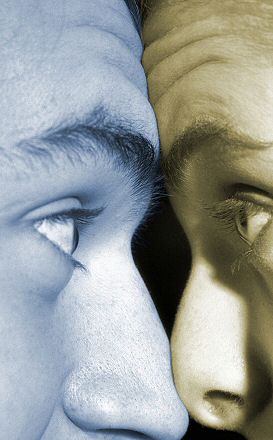Home Page
The latest articles, features and news.


Read About...


|
| | |
|
9 August 2011
Social networks and erectile dysfunction
by George Atkinson  Researchers have identified a new source for erectile problems among older men: the friendships between their female partners and the men's closest friends. The findings appear in the American Journal of Sociology.
Researchers have identified a new source for erectile problems among older men: the friendships between their female partners and the men's closest friends. The findings appear in the American Journal of Sociology. The researchers, from the University of Chicago and Cornell University, describe such situations as "partner betweenness." In such cases, a man's female partner has stronger relationships with his friends than the man does. In essence, the romantic partner comes between the man and his friends. "Men who experience partner betweenness in their joint relationships are more likely to have trouble getting or maintaining an erection and are also more likely to experience difficulty achieving orgasm during sex," write the authors of the study, Benjamin Cornwell at Cornell and Edward Laumann at UChicago. They argue that partner betweenness undermines men's feelings of autonomy and privacy, which are central to traditional concepts of masculinity. This can lead to overt conflict or problems with partner satisfaction and attraction. A man whose female partner has greater contact with some of his friends than he does is about 92 percent more likely to have trouble getting or maintaining an erection than a man who has greater access than his partner does to all of his friends.
Interestingly, even among men who were healthy and capable of having satisfying sexual relationships, there is increased risk for sexual problems when their partners have greater contact with the couple's shared friends. "In general, while the majority of men have more contact with all of their confidants than their partners do, about 25 percent of men experience partner betweenness in at least one of their confidant relationships," explained Laumann. Laumann added that the study shows the value of understanding the connections between social relationships and health. "The results point to the importance of social network factors that are rarely considered in medical research - network structure and the individual's position within it." Related:
Sexual anxiety a predictor of infidelity
Blinded - literally - by jealousy
The Ups And Downs Of Erectile Function Source: University of Chicago
|
|

